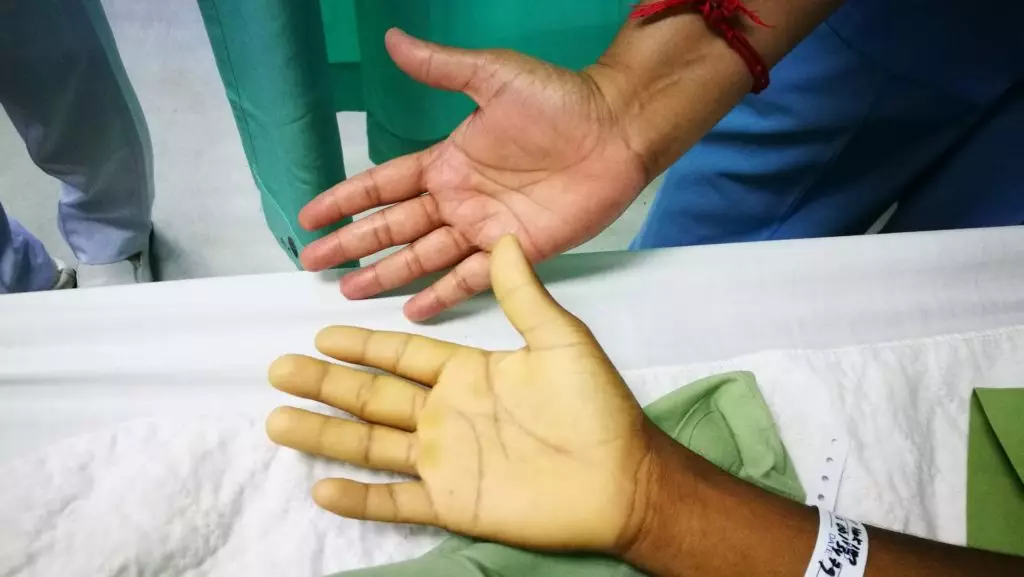
Iron Deficiency Anemia is a common type of anemia characterized by a deficiency of iron in the body, leading to a reduced ability of the blood to carry oxygen to the body’s tissues.
It is the most common type of anemia in Kenya and in other developing countries.
Iron deficiency anemia is more common in pregnancy and in females.
Anemia itself is a condition whereby there are not enough red blood cells or hemoglobin to meet the body’s oxygen needs, this results in decreased capacity of the blood to carry oxygen to the tissues.
The hemoglobin concentration necessary to meet body demands depends on age, sex and pregnancy status.
The cut off levels for Hb in different age groups and gender are:
- Non pregnant women (15years and above) 12g/dl or more
- Men (15yrs and above) 13g/dl or more
- Pregnant women and children: 11g/dl or more
:
Causes of Iron Deficiency Anemia:
- Poor iron absorption due to conditions like celiac disease or chronic inflammation.
- Blood loss from heavy menstruation, gastrointestinal bleeding (ulcers, polyps, malignancy or gastrointestinal disorders), or frequent blood donation.
- Increased iron demands during pregnancy or rapid growth in children.
- Inadequate dietary intake of iron-rich foods, which is very common in our Kenyan set up.
Signs and Symptoms of Iron Deficiency Anemia:
- Fatigue
- Weakness
- Pale skin
- Shortness of breath
- Dizziness
- Headache
- Cold hands and feet
- Brittle nails and
- An increased susceptibility to infections.
Diagnosis:
Iron deficiency anemia is diagnosed through blood tests that measure the levels of hemoglobin, hematocrit, serum iron, ferritin (a protein that stores iron), and total iron-binding capacity (TIBC). A low hemoglobin level, along with low ferritin and iron levels, is typically indicative of iron deficiency.
Treatment:
For tailored advice and guidance on diagnosis, management and prevention of anemia, click on this link https://hellodaktari.co.ke and book an appointment with us.
Treatment aims to correct the underlying cause and replenish iron stores in the body. It may include:
- Dietary changes to include more iron-rich foods like green leafy vegetables, plenty of fresh fruits, intake of plenty of water, red meat, poultry, fish, beans, lentils, and iron-fortified cereals.
- Iron supplements, often in the form of ferrous sulfate or ferrous gluconate, as prescribed by a healthcare provider. They should be taken for at least 3months.
- Treating any underlying conditions causing iron loss or malabsorption.
- In severe cases or when oral iron supplements are not effective, intravenous iron therapy may be necessary.
- Patients who have a HB of less than 7g/dl or are very symptomatic may require blood transfusion.
Prevention:
Most Kenyans especially in the urban prefer consuming fast foods and junk food which have very minimal nutritional value, Preventing iron deficiency anemia involves maintaining a balanced diet that includes adequate iron intake, especially in infants, young children, pregnant women, and individuals with increased iron requirements. Additionally, treating any conditions that lead to chronic blood loss or impaired iron absorption is crucial.
Complications:
If left untreated, iron deficiency anemia can lead to more serious health problems, including:
- Heart problems
- Developmental delays in children
- Impaired cognitive function.
« Previous Article
Contact
Phone: +254 723662062
Email: info@hellodaktari.co.ke

Dating is a truly joyful experience. Sometimes we lose sight of this truth in our search for the right Online dating site